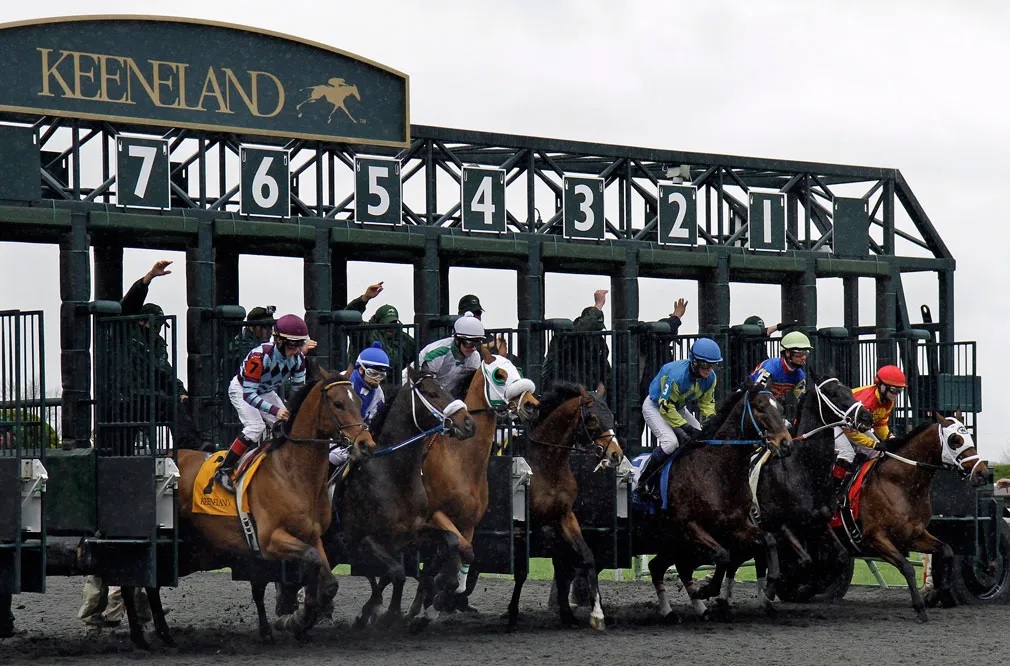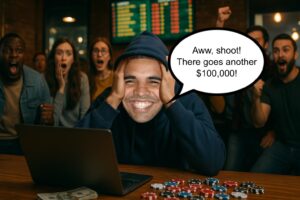The year was 1967. The first national anti-Vietnam war protest was held in Washington, D.C., the Toronto Maple Leafs won their last Stanley Cup by defeating the Montreal Canadiens in 6 games, and two Canadian taxi drivers with entrepreneurial tendencies were about to start a business that would lead to the legalization of off track betting in Ontario, and two changes to the gaming and betting provisions of the Criminal Code (Code).
These taxi drivers, Lemelin and Brisson, would frequently drive customers to racetracks in Toronto and Fort Erie. Since they were going to the racetracks anyway, customers and other people they knew would give Lemelin and Brisson money and told Lemelin and Brisson how to bet that money. Lemelin and Brisson charged a fee to provide this service.
Our entrepreneurial taxi drivers were charged under the Code with engaging in the business or occupation of betting. However, the court acquitted Lemelin and Brisson on the basis that an essential element of bookmaking was engaging in illegal betting, and Lemelin and Brisson were placing bets at legal racetracks.
After Lemelin and Brisson were acquitted, various businesses were established that charged fees for placing legal off-track bets. Gruhl and Brennan operated a pari-mutual brokerage business. All bets were made at the racetrack, and they would recieve a commission based on the amounts wagered. . Employees acted as agents of the bettors, and placed bets which they had undertaken to carry out for consideration. Like Lemelin and Brisson, Gruhl and Brennan were charged with engaging in book-making under the Code. And, like Lemelin and Brisson, Gruhl and Brennan were acquitted.
Once Gruhl and Brennan were acquitted, numerous legal, unlicensed, off-track betting establishments were opened. Since these establishments effectively had the blessing of the courts, Parliament passed a law in 1969 that prevented the practice of receiving commission by acting as agents for bettors.
After this law was passed, unlicensed off-track betting establishments could no longer operate lawfully. To get around the new law, these establishments would operate as a free service and collect tips, or by selling racing forms at a marked-up value.
In response, Parliament created two more offences: engaging in the business or practice of placing or agreeing to place bets on behalf of other persons, whether for a consideration or otherwise, or holding oneself out or allowing oneself to be held out as engaging in the business or practice of placing or agreeing to place bets on behalf of other persons, whether for a consideration or otherwise. These sections conclusively ended the legality of the business or practice of placing bets for others.
An era of Canada’s gambling history began in 1967 with the decision of Lemelin and Brisson and ended in 1975 with the passing of what are now subsections 203(b) and 203(c) of the Code. Between 1967 and 1975, unlicensed off-track betting shops were legally able to place bets on behalf of Canadians; initially for consideration and then only for gratuities.
As Campbell, Hartnagel, and Smith observe in their 2005 publication The Legalization of Gambling in Canada, amendments to the gambling provisions of the Code have been seemingly minor, ad hoc changes. Many of these ad hoc changes have implications beyond the original purpose of the legislation. The original purpose of what is now section 203 of the Code was to prohibit unlicensed off-track betting schemes.
Unlicensed off-track betting schemes have been legislated out of existence. Section 203, however, has a much broader application than unlicensed off-track betting schemes. It applies to the placement of bets at lawful betting establishments and the placing of bets for others with bookmakers. It applies if consideration is paid for the placing of a bet and applies, regardless of whether consideration is paid, if one is in the business or practice of placing bets for others.
GME Law is Jack Tadman, Zack Pearlstein, Lindsay Anderson, and Will Sarwer-Foner Androsoff. Jack’s practice has focused exclusively on gaming law since he was an articling student in 2010, acting for the usual players in the gaming and quasi-gaming space. Zack joined Jack in September 2022. In addition to collaborating with Jack, and with a keen interest in privacy law, Zack brings a practice focused on issues unique to social media, influencer marketing, and video gaming. Lindsay is the most recent addition to the team, bringing her experience as a negotiator and contracts attorney, specializing in commercial technology, SaaS services, and data privacy.
At our firm, we are enthusiastic about aiding players in the gaming space, including sports leagues, media companies, advertisers, and more. Our specialized knowledge in these industries allows us to provide tailored solutions to our clients’ unique legal needs. Reach out to us HERE or contact Jack directly at jack@gmelawyers.com if you want to learn more!
Check out some of our previous editions of the GME3 HERE and HERE, and be sure to follow us on LinkedIn to be notified of new posts, keep up to date with industry news, and more!




